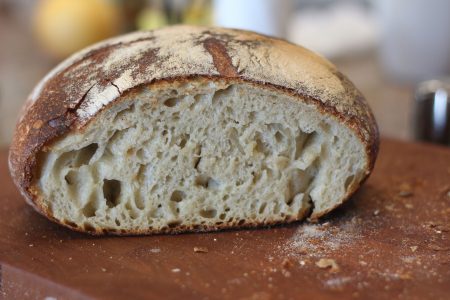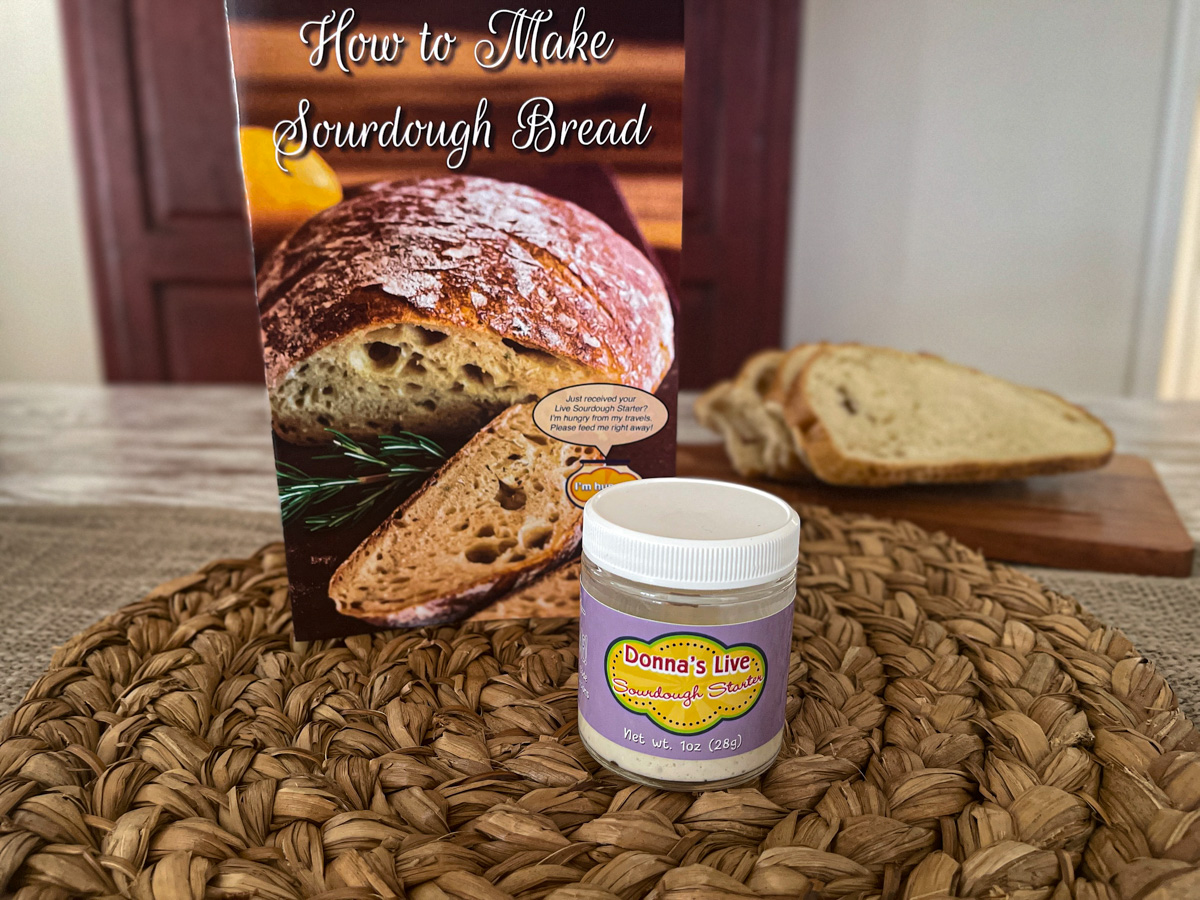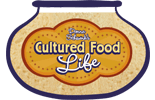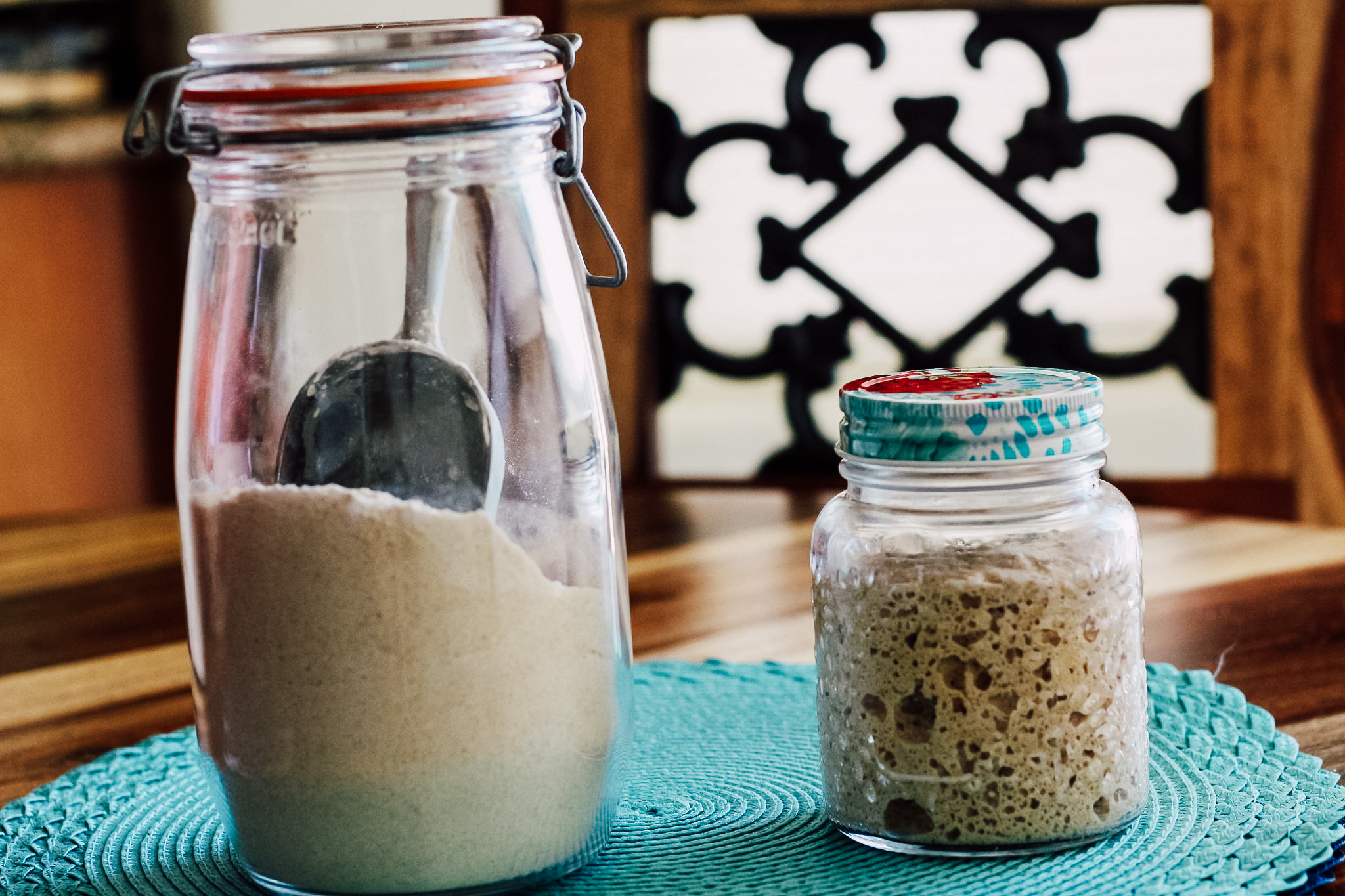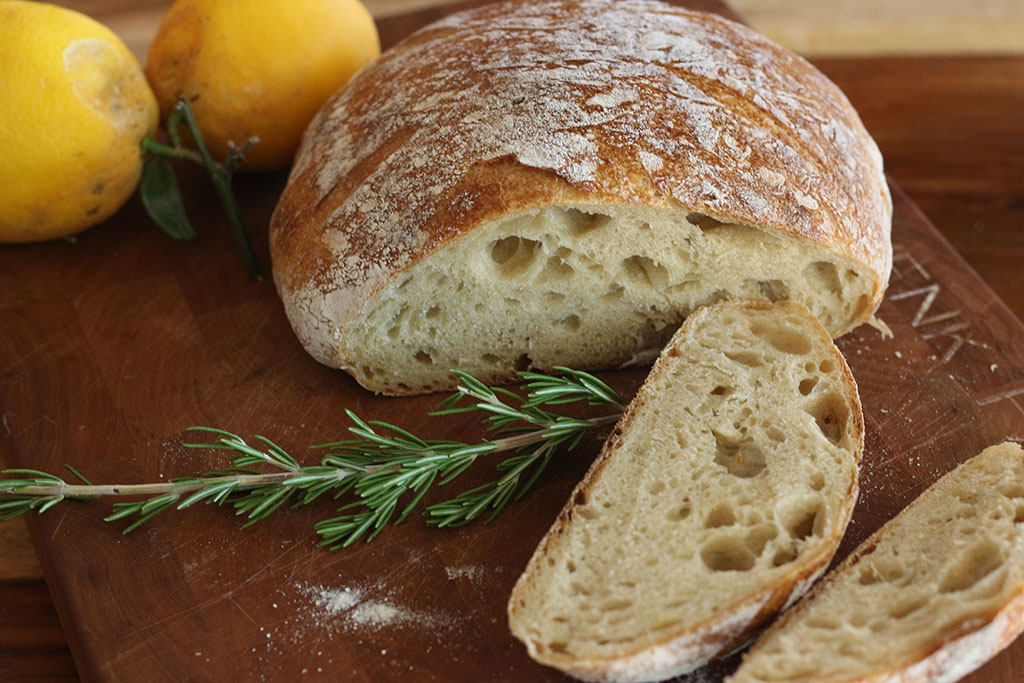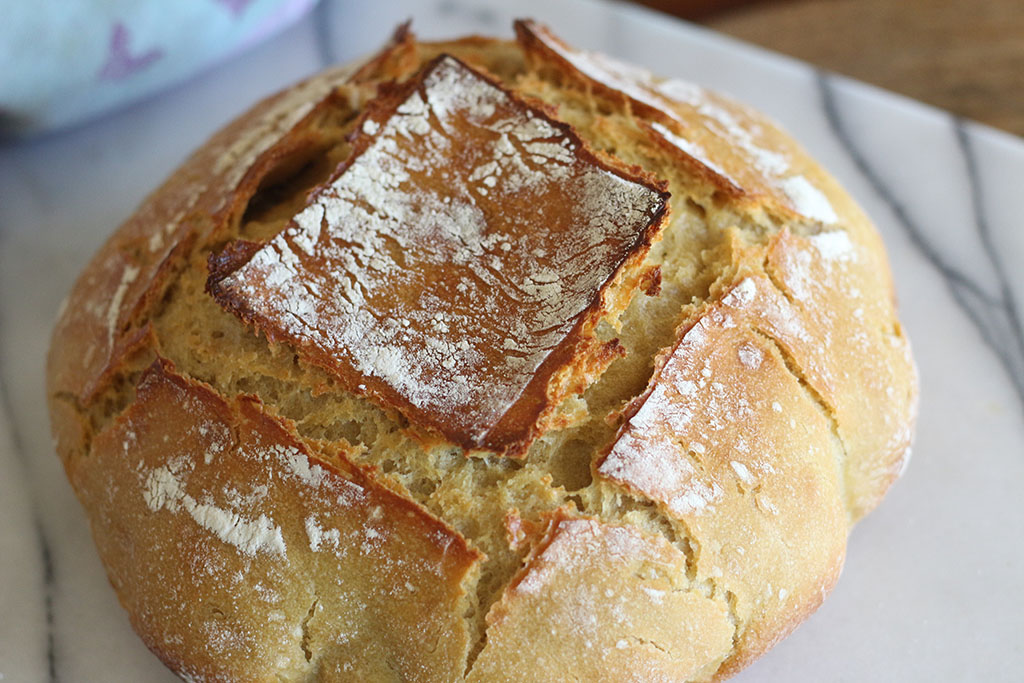
7 Reasons I Eat Sourdough Bread
Flour And Water Gets Magical
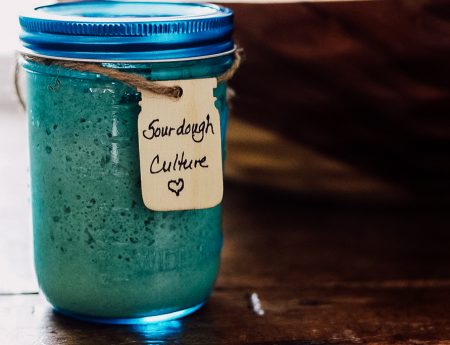
Phytic Acid 90% Reduced in Fermented Bread
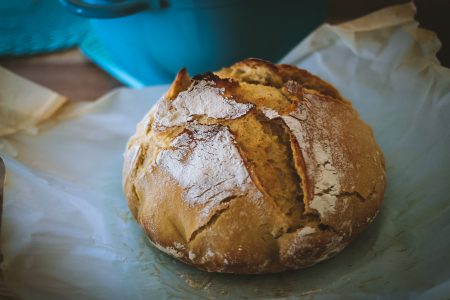
More Digestible and Lower Glycemic Index
During the making of sourdough bread, complex carbohydrates are broken down into more digestible simple sugars, and protein is broken down into amino acids. Enzymes develop during rising. These enzymes are not lost while baking since the center of the loaf remains at a lower temperature than the crust. This fermentation, partly from Lactobacillus, also allows for a bread that is lower on the glycemic index, thus making it better for those with blood sugar issues. The fermentation also helps restore the functioning of the digestive tract resulting in proper assimilation and elimination. There have been studies suggesting that sourdough bread results in more even glucose levels. In this study, the subjects’ blood glucose levels were found to be lower after eating white sourdough bread compared to whole wheat, whole wheat with barley, and plain white bread. The subjects tested after eating whole wheat bread that wasn't fermented fared the worst – with spiking blood glucose levels. 2,3
Better For Those With Gluten Intolerance
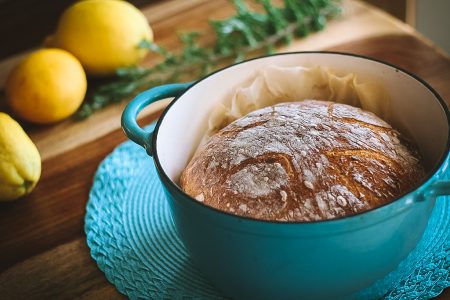
All wheat that we consume today is descended from Einkorn wheat which has about 14 chromosomes as compared to other kinds of wheat which have 28 to 42 chromosomes. This is important since some studies show that ancient wheat, with its fewer chromosomes, has lower levels of gliadins. Gliadins are proteins that can cause sensitivities in those who struggle with gluten. Einkorn does not contain this troublesome D genome (it only contains the A genome) and most testing for gluten intolerance is based on the D genome. And while einkorn does contain gluten, it is a different type of gluten that allows for easier digestion and nutrient absorption. It is also delicious and one of my favorite sourdough breads.
You can find out more about Einkorn Sourdough Bread here:
Increases Vitamins and Inactivates Aflatoxins
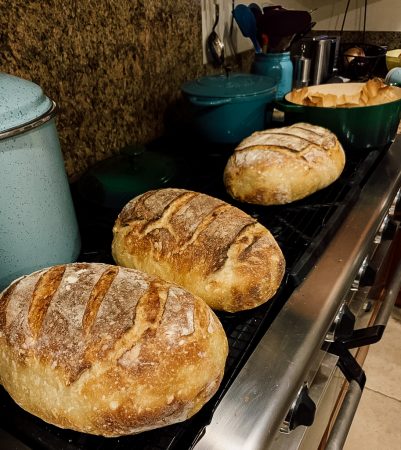
This lactic acid bacteria not only preserves the bread but can also reduce mycotoxins. The sourdough process produces changes to the composition of the grain in numerous ways that make it a more beneficial food. Fermentation produces vitamin C and increases the content of vitamins B, B2, B5 and B6. Carotene, which is converted to vitamin A, increases dramatically – sometimes as much as eight-fold. Using a sourdough culture also inactivates aflatoxins which are toxins produced by fungus and are potent carcinogens found in grains. The microbial population during the fermentation period of bread making keeps evolving. In one study, it was found that the starter flours were initially contaminated with Gram-negative bacteria (which are more dangerous) Acinetobacter, Pantoea, Pseudomonas, Comamonas, Enterobacter, Erwinia, and Sphingomonas species. The abundance of these species varied with flour source. However, within one day of the fermentation process, the populations of most of those bacterial species were eliminated and were replaced with gram positive bacteria, represented by lactic acid bacteria, which was present initially at very low amount until fermentation took place. It was suggested that flour type also contributes to bacterial biodiversity. 4
The Flavor and Expression of You!
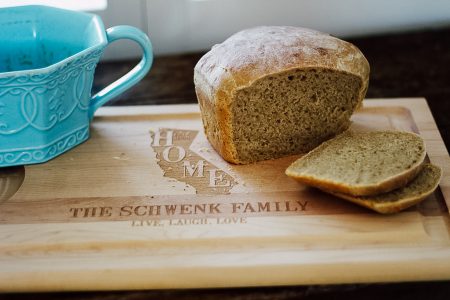
Your sourdough starter will adapt to you and your kitchen and the organisms that surround you. This is the ultimate world of creation that I live in. Not only do I make and sell my cultures but they are truly a part of me. They will soon become a part of you and your home, and your bread will be a one-of-a-kind creation that only you can make. Just like San Francisco sourdough bread has a stronger, sharper, tangy flavor than most sourdough breads, the sourness comes from lactic and acetic acids produced by inevitable environmental bacteria in that area. They work on the flour's sugars along with the yeast changing the taste. Different bacteria make a different sour flavor. Don't you think that's cool? San Francisco is awash in local bacteria species that make its sourdough bread famous. Don't you want to find out what your bread is going to taste like? Don't you love that it will literally be an expression of you!
Listen To My Podcast
It took me a long time to discover why my daughter struggled with gluten. It also helped me discover that it wasn't the bread, but what we've done to the bread and our guts, that was wreaking such havoc on our lives. Listen to gain understanding as to why our bread can be better than ever before.
References:
- https://www.ncbi.nlm.nih.gov/pubmed/19774556
- https://www.ncbi.nlm.nih.gov/pubmed/18570696
- http://www.uoguelph.ca/news/2008/07/sourdough_bread.html
- http://digitalcommons.unl.edu/cgi/viewcontent.cgi?article=1160&context=foodsciefacpub
- https://www.npr.org/sections/thesalt/2018/11/12/665655220/sourdough-hands-how-bakers-and-bread-are-a-microbial-match
Are you on the list?
Sign up today and I'll send you my free Getting Started Guide!
Each week I'll send you updates, tips, recipes, and more! You might even be a winner of my weekly giveaway! (starter cultures, memberships, and more!)
Come be a part of my cultured food family!

